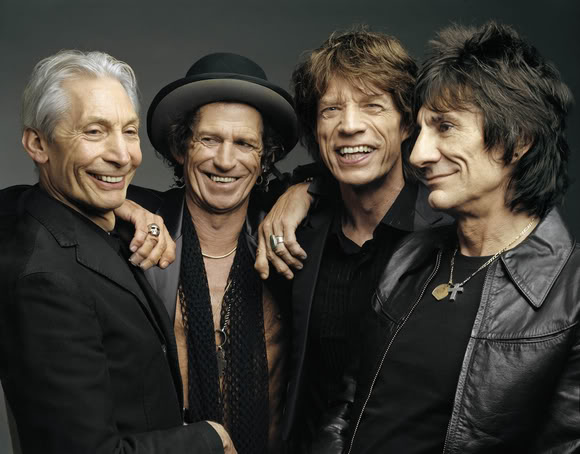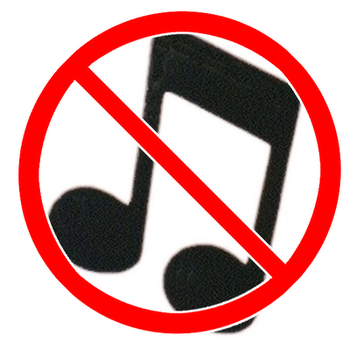
It’s often nice when a band does an album out of left-field. I seem to be in the minority in believing this, as these albums tend to get fans up in arms about “selling out” or some such fucking nonsense. This is especially true in metal, but generally observable throughout rock – rock fans being the most inanely conservative and tediously unadventurous of any genre (perhaps excepting the selfrighteous folkies screaming “Judas!” when Dylan went electric in 1965). I don’t, of course, mean when a band loses it and goes all crap – as can be seen when they only have one good album in them (Tricky, Oasis, The Cranberries). I mean when they are good and try something different, take some risks, branch out, have a bit of fun, stretch themselves. Here’s some examples of when artists try something different and pull it off.
Bob Dylan, Nashville Skyline
Though I am not really a big Dylan fan (I mean, really, where’s the beef?), this is a beautifully done album. That near-yodel of a singing voice, coming from his normal acerbic nasal register, must have knocked lots of his fans for six. Then too, the lyrical content, far from the early political protest songs or the hipster-period cryptic allusions and wordplay (“Leopard Skin Pillbox Hat”, indeed) is quiet, meditative tales of love and loss. The music of course is country, but in the folky, rural sense, not the absurd cheesy gash beloved of white trash around the world. (Trust me, I know). Though Dylan had to some extent prepared the ground with John Wesley Harding, that retained his familiar voice and harmonica. Nashville Skyline, with its steel guitars and cornpone twang, is something else altogether. I really like it.
U2, Achtung Baby/Zooropa
These albums have to be considered companion pieces, and were of course unified by the Zoo TV tour. There’s also the fact that both are only half-good, with noticeable declines in quality on side 2 in both. Achtung Baby is where U2 dropped the earnestness and the bombast and went post-modern: with magnificent Brian Eno production, it shakes their sound out from top to bottom, reconfiguring and reimagining it completely. (Remember, they had been critically slaughtered for the rootsy Rattle And Hum three years earlier). Opening with “Zoo Station” and its direct lift from Bowie’s Low tune “Sound and Vision”, it leads directly into the cool, hip “Even Better Than The Real Thing” and the (now cliched, but still majestic) “One”. Superb triptych! With fluid rhythms and swirling neo-psychedlic guitars, the whole album mostly keeps to rock structures but is endlessly inventive with the sound. Zooropa on the other hand delves even further into dance music (“Lemon”, maybe my favourite U2 song ever), electronica (“Numb”, which is a kind of counterpoint to Tubular Bells, but contrasting the mush of modern consumerism where Oldfield found affirmation in musical layering), found sounds (the opening half of “Zooropa”, for which the album credits thank “the wold of advertising”, and the innocence of “Babyface”, four full years before Radiohead’s “No Surprises” – honestly, compare the two) and tops off the opening half with the heartbreaking “Stay (Faraway, So Close!)”. Shame, then, that the second half is turgid. Apparently Zooropa was going to be an EP made during the Zoo TV tour: if they’d only taken the time to write a few more songs to knock off filler like “Some Days Are Better Than Other” and “Dirty Day”, it might have been an absolute monster of an album. The post-modernism of Achtung Baby is refined even further: where that album is most about relationships and loss, Zooropa is about the human condition in the late twentieth century. It’s a staggering achievement… for five songs out of ten. Still, at the time, I found it one of the most intellectually exciting albums I had ever heard.
REM – Monster
So the plan was REM were going to do a proper rock album and Nirvana, following up from Unplugged, were going to do something a bit more pastoral, like Automatic For The People. Well, that didn’t quite work out. Great idea though. REM still made their rock album in Monster, which comes across as a cathartic blurt after the pastoral Out Of Time and the sombre Automatic For The People. But rather than rock, REM “rock”. It always seems like a genre exercise, a self-conscious effort which never escapes inverted commas. This can best be seen in songs like “Crush With Eyeliner” (great video, too) and “Star 69”, which is about the first time the REM have done a song about sex and getting some. Self-conscious hipsters that REM are, they can’t really rock out like Nirvana would, or even as Pearl Jam did in their wilder moments like “Porch” or “Leash”. Monster therefore comes across as tongue in cheek, as a glam rock album akin to Mud or The Sweet rather than the alt rock sincerity of Seattle bands. But given REM’s need to catharsize and to slough off their earnest image, it all works rather well, if one-dimensionally. Still, the guitar sound in “What’s The Frequency, Kenneth?”, “Crush With Eyeliner” and “Let Me In”, and the tickled eroticism of “Tongue” and “Strange Currencies” are fine additions to REM’s palette.
Slayer, South of Heaven
Slayer’s early albums focus on speed and aggressive attack, like being slashed with a stanley knife. The ferocious riff that tears open the first track on their first album (“Evil Has No Boundaries” from Show No Mercy) shows this perfectly. Insanely fast, like Iron Maiden on demonic amphetamines, the riff explodes into the first verse with a shrieking scream from Tom Araya, before storming into the unsurpassable couplet “Blasting our way through the boundaries of Hell / No-one can stop us tonight!” Hell yes! The second album Hell Awaits mixes it up a bit but the short savage blast of Reign In Blood cannot be beaten for speed and intensity. It’s insanely, demonically ferocious. Fortunately Slayer realised this and switched tack for the subsequent South of Heaven. With slower tempos, the music is now more full bodied, thicker, beefier. (This was three years before Metallica did something similar with Metalllica, AKA the Black Album). It was then a side of Slayer no-one had really heard before, but they do it really well, and in fact South of Heaven is my favourite Slayer album. The opening title track has a spooky, haunting opener and builds and builds in intensity; “Silent Scream” has terrific breakbeats from Dave Lombardo; “Behind The Crooked Cross” is a fascinating tale of a Nazi trapped “by a cause I once understood”; the ending of “Mandatory Suicide” is horrifying; the crunching ending of “Ghosts Of War” is fantastic; and the cold sparkling arpeggios which open “Spill The Blood” show the way to the next album’s “Seasons In The Abyss”, which would actually be an MTV hit (!). Far too few metal bands have a good grasp of dynamics, and are content to pound away without variation in tempo or intensity, making it far too homogenous. In South of Heaven, Slayer show their master of both.
Talking Heads, Remain In Light
Starting out as a nervy CBGBs/new wave band, Remain In Light is a real leap. It showcases the band trying out polyrhythms and jungle funk, and is marvellously produced with liquid fluidity by Brian Eno. The centrepiece is “Once In A Lifetime”, which everyone should know by now, but there’s lots of killer tunes, such as “Born Under Punches”, “The Great Curve” and (my favourite) “Seen And Not Seen”. David Byrne, man, is a goddamn genius. This is a terrific example of a band developing their sound while staying true to their aesthetic. Some bands change their approach and with it what seems to be their entire guiding principles – for example Suede after the aching romantic heartache of Dogmanstar shed the angst to become upbeat glamsters on Coming Up and subsequent albums. Which might be alright as an album, but like… what happened to the band I used to like? (See also Poison, chasing their tales in an attempt to gain critical favour with posturing bluesy albums like Native Tongue). Talking Heads here show how to do it, with this exceptional album.



